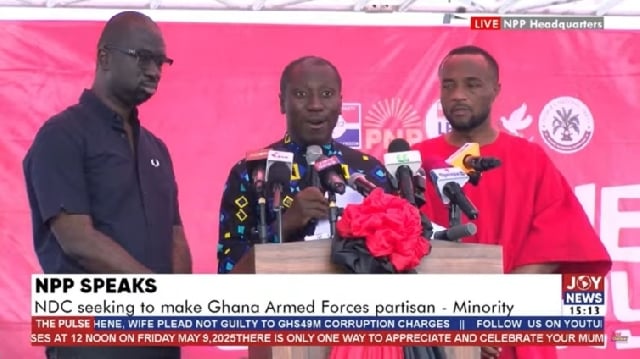Minister for Defence, Dr. Edward Omane Boamah, has dismissed allegations by the opposition New Patriotic Party’s ‘mighty’ Minority in Parliament that the government is unjustly removing senior military officers, describing the claims as out of touch and lacking basis.
In a Facebook post on Thursday, the Minister responded sharply to the concerns raised by the Minority, led by Alexander Afenyo-Markin, during a press conference in Accra.
The Minority had alleged that the dismissal of certain military generals was politically motivated and posed a threat to the professionalism of the Ghana Armed Forces.
Dr. Boamah, however, called on the Minority to “get serious” and respect established military protocols.
He accused them of either being unaware of or deliberately ignoring long-standing precedents regarding military command transitions.
“The Minority in Parliament must stand up to be counted,” the Minister wrote. “They are either out of touch or have deliberately forgotten the time-tested precedence within the Ghana Armed Forces.”
He further referenced a valedictory meeting held by the Chief of Defence Staff, Lieutenant General William Agyapong, with Two-Star Generals to underscore the transparency and tradition behind recent changes in the military’s leadership.
A statement released by the Ghana Armed Forces confirmed the meeting took place on Monday, April 28, 2025, at the CDS’s office at Burma Camp.
The engagement, described as a “valedictory meeting,” was attended by all Two-Star Generals currently serving, during which the outgoing officers were formally recognised in accordance with military custom.
The Defence Minister emphasised that even the affected generals acknowledged the process as part of the established and respected protocol within the Armed Forces.
“This is not the first time such transitions have taken place, and it certainly won’t be the last. The professionalism and integrity of the Ghana Armed Forces must not be politicised,” Dr. Boamah added.
The Ministry of Defence has not released specific names of the officers affected, but insists the changes are procedural and rooted in military tradition, not political interference


